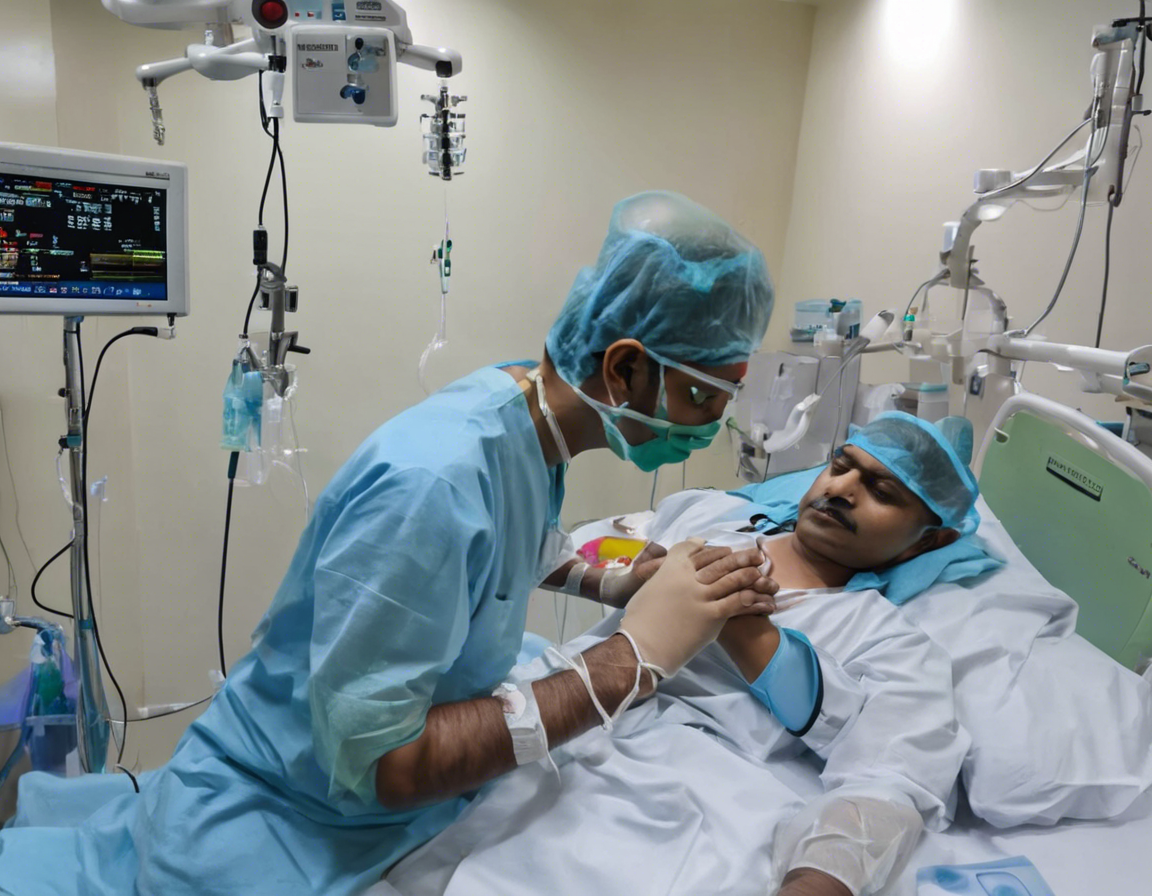In a groundbreaking medical achievement, Ganga Ram Hospital in Delhi recently conducted a successful hand transplant surgery, marking a significant milestone in the field of reconstructive surgery. The hospital’s team of skilled surgeons and healthcare professionals achieved this feat through meticulous planning, advanced surgical techniques, and unwavering commitment to improving the quality of life for their patients.
Hand transplantation is a complex procedure that involves the surgical attachment of a donor hand to a recipient who has lost one or both hands due to traumatic injury, illness, or congenital deformity. This innovative procedure offers a ray of hope to individuals who have lost the use of their hands and arms, enabling them to regain independence, mobility, and dexterity.
The Surgical Procedure
The hand transplant surgery at Ganga Ram Hospital involved a multidisciplinary team of specialists, including plastic surgeons, orthopedic surgeons, anesthesiologists, and rehabilitation therapists. The surgery itself is highly intricate, requiring precision and expertise to connect the bones, blood vessels, nerves, muscles, and skin of the donor hand to the recipient’s arm.
The surgical team meticulously planned the procedure, ensuring compatibility between the donor hand and the recipient’s body to minimize the risk of rejection. Immunosuppressive medications were administered post-surgery to suppress the recipient’s immune response and prevent the body from rejecting the transplanted hand.
Post-Transplant Care
Following the surgery, the recipient underwent intensive post-transplant care and rehabilitation to facilitate the healing process and optimize hand function. Physical therapy, occupational therapy, and psychological support were crucial components of the recipient’s recovery journey, helping them adapt to their new hand and regain strength, coordination, and sensation.
The medical team at Ganga Ram Hospital closely monitored the recipient’s progress, adjusting their treatment plan as needed to ensure optimal outcomes. The recipient received comprehensive care to manage potential complications, monitor for signs of rejection, and support their overall well-being.
The Impact of Hand Transplantation
Hand transplantation represents a transformative advancement in the field of reconstructive surgery, offering new possibilities for individuals with severe hand injuries or deformities. By restoring hand function and aesthetics, hand transplantation can significantly improve the quality of life for recipients, enabling them to perform daily tasks, engage in recreational activities, and regain a sense of normalcy.
The success of the hand transplant surgery at Ganga Ram Hospital exemplifies the hospital’s commitment to innovation, excellence, and patient-centered care. This milestone achievement paves the way for future advancements in reconstructive surgery and underscores the importance of interdisciplinary collaboration, research, and technological advancements in healthcare.
Frequently Asked Questions (FAQs)
- Who is a suitable candidate for hand transplantation?
-
Suitable candidates for hand transplantation typically include individuals who have lost one or both hands due to traumatic injury, illness, or congenital deformity. Candidates must undergo a thorough evaluation to assess eligibility for the procedure.
-
What is the recovery process like after hand transplantation?
-
The recovery process after hand transplantation involves intensive post-transplant care, including physical therapy, occupational therapy, and regular follow-up appointments. The recipient will be closely monitored for signs of rejection and complications.
-
What are the risks and complications associated with hand transplantation?
-
Risks and complications of hand transplantation include rejection of the transplanted hand, infection, nerve damage, and side effects of immunosuppressive medications. Close monitoring and adherence to the prescribed treatment plan are essential to minimize these risks.
-
How long does it take for a recipient to regain hand function after transplantation?
-
The timeline for regaining hand function after transplantation varies for each individual and depends on various factors, including the extent of the surgery, rehabilitation efforts, and the body’s response to the transplant. It can take several months to years to achieve optimal hand function.
-
Are there any long-term considerations for recipients of hand transplantation?
-
Recipients of hand transplantation require lifelong medical follow-up, including monitoring for rejection, managing immunosuppressive medications, and addressing any potential complications. Psychological support and rehabilitation may also be needed to support the recipient’s long-term well-being.
-
Can hand transplantation be performed for children with congenital hand deformities?
-
Hand transplantation in children with congenital hand deformities is a complex decision that requires careful consideration of the risks and benefits. The eligibility for hand transplantation in pediatric patients is evaluated on a case-by-case basis, taking into account the child’s overall health and prognosis.
-
What advancements are being made in the field of hand transplantation surgery?
-
Ongoing research and technological advancements in the field of hand transplantation aim to improve surgical techniques, enhance outcomes, and minimize the risks associated with the procedure. Collaborative efforts among healthcare professionals and institutions worldwide continue to drive innovation in reconstructive surgery.
-
How can individuals support patients undergoing hand transplantation?
-
Individuals can support patients undergoing hand transplantation by providing emotional support, assisting with daily tasks, and encouraging their rehabilitation efforts. Education and awareness about hand transplantation can also help reduce stigma and promote acceptance and inclusion for recipients.
-
Is hand transplantation covered by insurance?
-
Coverage for hand transplantation surgery may vary depending on the individual’s insurance plan, the specific procedure performed, and the policies of the healthcare provider. It is essential to consult with the insurance provider and healthcare team to understand coverage options and potential costs associated with hand transplantation.
-
What are the success rates of hand transplantation surgeries?
- The success rates of hand transplantation surgeries have improved significantly over the years, with many recipients experiencing positive outcomes in terms of hand function, quality of life, and psychological well-being. Long-term studies and follow-up care help assess the efficacy and sustainability of hand transplantation in improving patient outcomes.
